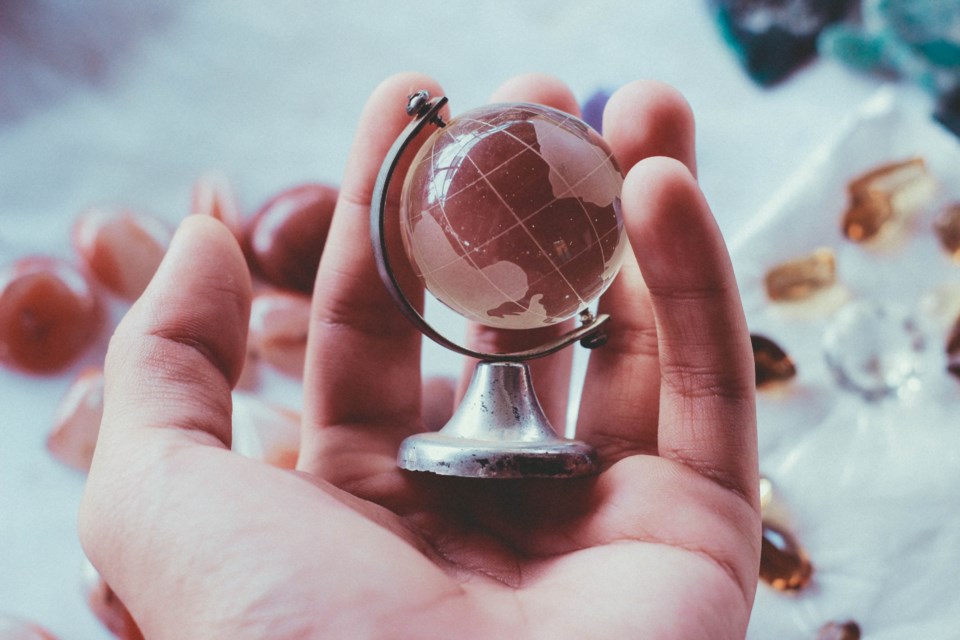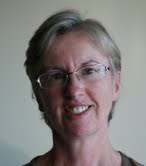 Refugees, immigrants, nationalism… The new realities are pressing hard against our social structures and systems, needing to forge new patterns and meeting resistance. Both forces are necessary – the new to create the future, and the old to conserve what was valued in the past
Refugees, immigrants, nationalism… The new realities are pressing hard against our social structures and systems, needing to forge new patterns and meeting resistance. Both forces are necessary – the new to create the future, and the old to conserve what was valued in the past
Ideally the two communicate. Ideally dialogue leads to a plan.
“The earth is but one country and mankind its citizens”is a Bahá’à teaching that seems to resonate with most people regardless of their background. It dates from 1882, in the Middle East, as the sun rose on this new era. Ninety years later, when the iconic first photo of the earth was taken in 1972 by the crew of Apollo 17, it felt like there was an awakening, a collective gasp of awe. In the photo dubbed the Blue Marble was a planet without borders. Advances in areas such as trade, transportation and communication had gradually been bringing this about right under our noses.
With that gift comes the challenge of developing the social and political systems needed to successfully cope with an interconnected, joined-at-the-hip world. Until then, we’ll continue to have massive and unprecedented problems. Reinforcing the borders and retreating into the past isn’t a valid option. Beyond the humanitarian crisis of immigrants and refugees there are other challenges, such as environmental issues, which also have no borders. We need new systems for survival itself.
The first step is to know where we’re headed. We need to consciously plan for a global society that is just, democratic, humane in its essence and respectful of all life with whom we share the planet. We need to teach our children to put into practice recognition of “the inherent dignity”and “the equal and inalienable rights of all members of the human family” which, according to the, is “the foundation for freedom, justice and peace”.
The second step is to recognize the progress already made, through our speech and our actions. Systemic changes in the international order have been underway for quite some time. Think League of Nations around the time of World War I, succeeded by the United Nations a few decades later. International treaties quickly followed, in areas such as trade, finances, security and more recently, climate. There’s been progress in civil rights and gender equality, in poverty reduction, education, health –Ěý virtually every area of human endeavor.
The third step is to work collaboratively and with determination toward our goals.
In the Western world, our cultural values are more about freedom and individualism than harmony and wisdom. We keep expecting magic bullet solutions from heroes, technology, brilliant businessmen or maybe alien invasions, not anything collaborative or collective. The planned, the practical, the phased in, the carefully cultivated are rarely celebrated. Meanwhile, to raise public awareness of our plight, we’ve been terrorized by doomsday scenarios and apocalyptic dystopias that have produced hopelessness on a massive scale, not to mention regressive politics.
Why do we know so much about the problems and so little about the proposed solutions?
To quote an article in The Guardian, “In 2015, the UN’s special rapporteur on migration proposed two responses that would have done much to alleviate the crisis: mass international resettlement of refugees from Syria, and a temporary work visa scheme so that economic migrants could come and go, without getting trapped in the deadly clandestine routes.”
Did you know that? No? Neither did I.
It took a photo of a small boy’s body on a faraway beach to jar us into desperate, often heroic action – Ěýand then various forms of repressive reaction.
When the situation is turned on its head, it’s much easier to see the solutions necessary and to demand that they be implemented. If any of us were driven from our homes by war or drought or famine, our passports useless, our only possessions those we could physically carry, what kind of treatment would we want to receive?
“If thine eyes be turned towards justice, choose thou for thy neighbour that which thou choosest for thyself.” The Bahá’à form of echoes the same concept that’s been repeated in virtually every belief system the world over, for thousands of years.
Every one of those belief systems gradually brought us a little closer towards our collective maturity, to fulfilling our potential as a species. So here we are, trying to come to terms with the global age that has every reason to become a golden age. The one we’re being dragged into kicking and screaming.
What photograph will it take for us to truly wake up?
 Sheila Flood is a member of the Bahá’à Faith (), a chaplain with UVic Multifaith Services and the Secretary of the Victoria Multifaith Society.
Sheila Flood is a member of the Bahá’à Faith (), a chaplain with UVic Multifaith Services and the Secretary of the Victoria Multifaith Society.
You can read more articles on our multifaith blog, The Spiritual View,
Ěý

